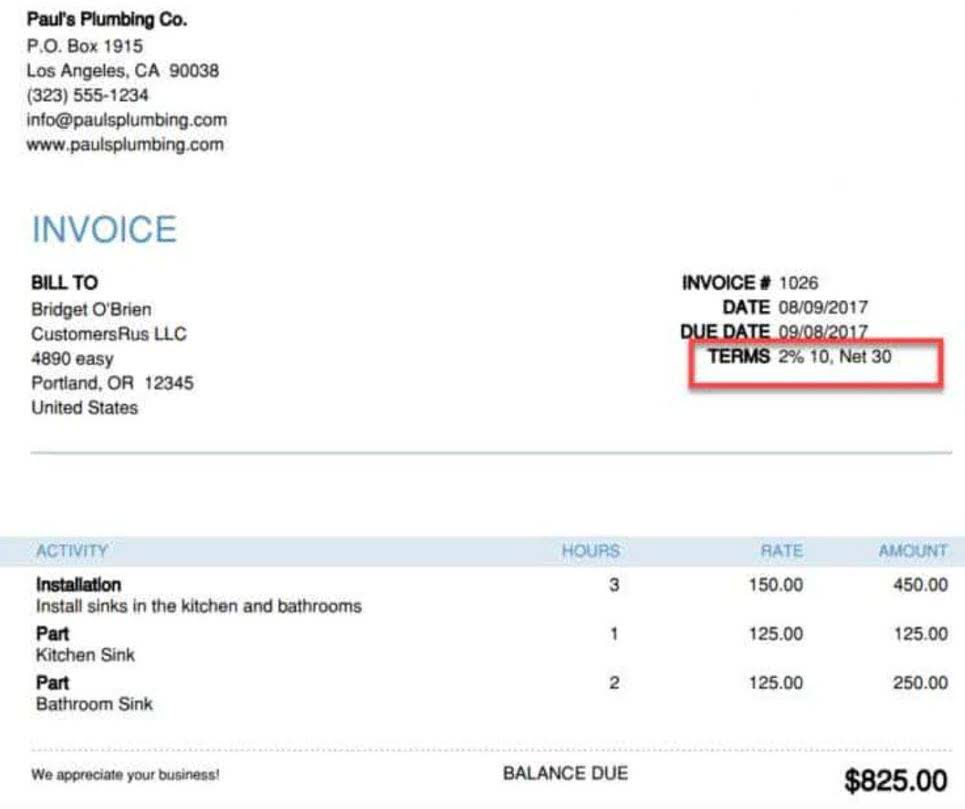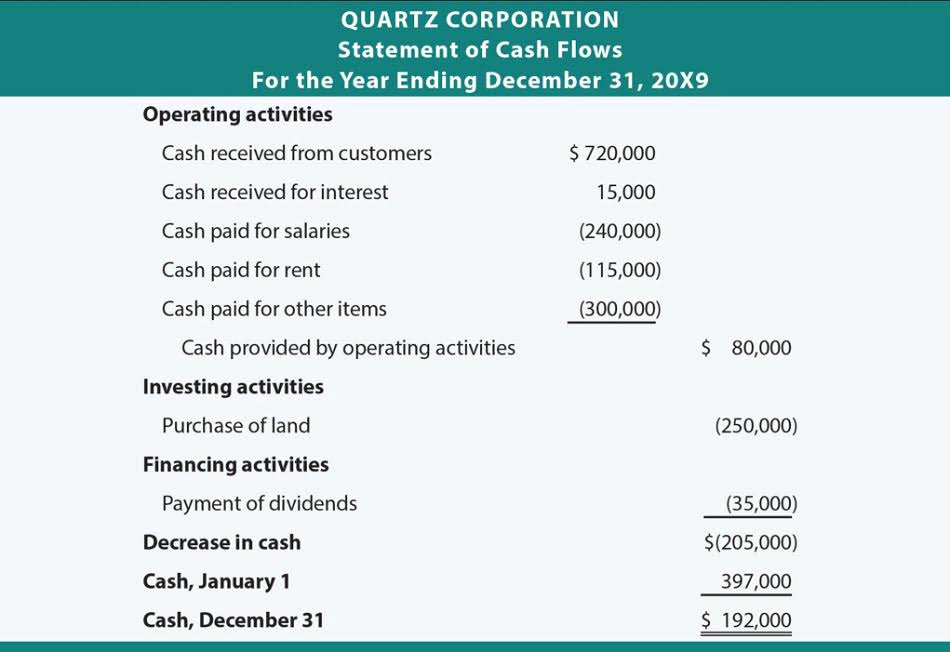
My Accounting Course is a world-class educational resource developed by experts to simplify accounting, finance, & investment analysis topics, so students and professionals can learn and propel their careers. Shaun Conrad is a Certified Public Accountant and CPA exam expert with a passion for teaching. After almost a decade of experience in public accounting, he created MyAccountingCourse.com to help people learn accounting & finance, pass the CPA exam, and start their career. For the past 52 years, Harold Averkamp (CPA, MBA) hasworked as an accounting supervisor, manager, consultant, university instructor, and innovator in teaching accounting online. For the past 52 years, Harold Averkamp (CPA, MBA) has worked as an accounting supervisor, manager, consultant, university instructor, and innovator in teaching accounting online.
Cash Flow Statement
A copy of the accruals and deferrals invoice is forwarded to the Accounting Department to create the journal entry to recognize the expense and the liability (accrued expense). Business Managers should review their preliminary monthly close report to ensure that all expenses for have been properly recognized in the current fiscal year. Business Managers must notify the Accounting Department of any money owed to the University for services that were rendered prior to the end of the year. The Accounting Department will also book a receivable and recognize revenue for cash receipts that follow the delivery of goods/services and exchange of cash as explained above. A common example of accounts receivable are Contribution Receivables for pledges made by donors.
How do Accruals and Deferrals affect the Financial Statements?
Accruals are when payment happens after a good or service is delivered, whereas deferrals are when payment happens before a good or service is delivered. An accrual will pull a current transaction into the current accounting period, but a deferral will push a transaction into the following period. Accurate financial statements, made possible by accruals and deferrals, provide stakeholders with reliable information for informed decision-making. Investors rely on these statements to assess a company’s past performance and future potential. Management teams also leverage these financial insights to make operational and strategic decisions, such as budgeting, pricing, and resource allocation. Accrued revenues, also known as accrued income, occur when a business earns revenue by providing goods or services, but the customer has not yet paid.
Why are accruals and deferrals important for accurate financial reporting?
For example, a consulting firm might complete a project for a client in December but not bill them until January. This entry increases revenue on the income statement and creates an asset, typically Accounts Receivable, on the balance sheet. Technically, accrual basis accounting is required only for publicly traded corporations under GAAP. However, as a small business or startup, you may struggle to attract investors without offering the insights accrual and deferral accounting methods provide.


Accruals and deferrals may have a significant effect on the main three financial statements. Grouch provides services to the local government under a contract that only allows it to bill the government at the end of a three-month project. In the first month, Grouch generates $4,000 of billable services, for which it can accrue revenue in that month. In this article, we will cover the accrual vs deferral and its keys differences with example.
The difference between revenue accruals and deferrals are summarized in the table below. An example of an accrual would be the accrued salary expense of an employee for a given month, even though the payment hasn’t been made yet. How to Run Payroll for Restaurants IDC MarketScape vendor analysis model is designed to provide an overview of the competitive fitness of technology and suppliers in a given market. The research methodology utilizes a rigorous scoring methodology based on both qualitative and quantitative criteria that results in a single graphical illustration of each supplier’s position within a given market. The Capabilities score measures supplier product, go-to-market and business execution in the short-term. The Strategy score measures alignment of supplier strategies with customer requirements in a 3-5-year timeframe.

Without these adjustments, financial statements would only show cash movements, which can be misleading regarding actual performance and financial health. Similarly, accruals and deferrals are also recorded because the compensation for them has already been received or paid for. However, since the matching concept will not allow them to be recognized as incomes or expenses, they must be recorded in the books of the business to complete the double entry.

Accrued expenses are initially recognized as a liability in the books of the business. Two such concepts that are important in the accounting system of a business are the accruals and deferrals concepts. These concepts of accrual vs deferral are important net sales concepts that play a vital role in the recognition of incomes and expenses of a business.
Income Statement
- Similarly, another example is interest income that a business has rightfully earned but the interest is only credited to the bank account of the businesses semi-annually or annually.
- A deferral of revenues or a revenue deferral involves money that was received in advance of earning it.
- This is because, according to the double-entry concept, a transaction affects, at least, two accounts.
- If these are not recognized in the period they relate to, the financial statements of the business will not reflect the proper performance of the business for that period.
- The deferred revenue journal entry example establishes a liability account in the balance sheet, the liability is sometimes referred to as the unearned revenue account.
The matching concept of accounting states that incomes and expenses should be recognized in the period they relate to rather than the period in which a compensation is received or paid for them. This means this concept of accounting requires incomes and expenses to be recognized only when they have been earned or consumed rather than when the business receives or pays cash for them. At the end of the fiscal year, many vendor invoices are received in early June for goods and services that were delivered on or before May 31st. In order to properly expense them in the correct fiscal year, an accrual must be booked by a journal entry. Invoices that require an accrual are identified by Disbursement Services when the invoices are processed for payment.
Accrual vs Deferral: Key Differences, Definitions, FAQs
Deferred incomes are the incomes of a business that the customers of the business have already paid for but the business cannot recognize as income until the related product is provided to the customers. For example, some products, such as electronic equipment come with warranties or service contracts for 1 year. Since the business has not yet earned the amount they have charged for the warranty/service contract, it cannot recognize the amount received for the contract as an income until the time has passed. Accrued incomes are the incomes of the business that it has already earned but has not yet received compensation for. For example, a business sells products to a customer but the customer has not yet paid for the products and the business has not yet billed the customer. These products can either be physical products such as manufactured goods or can also be the service.
0 Comments